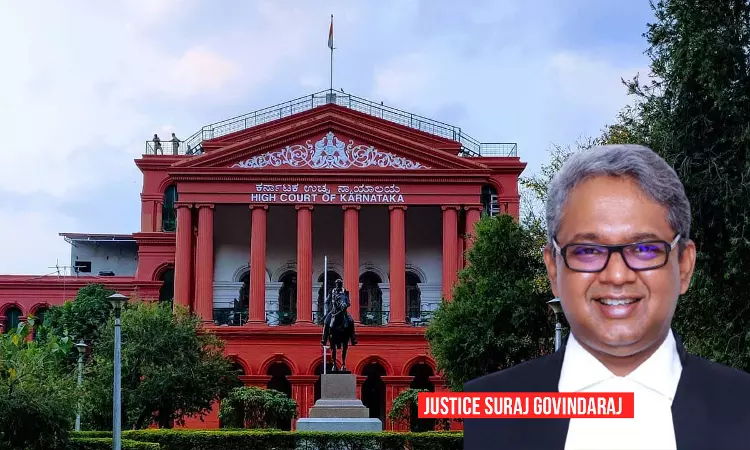- Home
- /
- High Courts
- /
- Karnataka High Court
- /
- Parole Leave Is A 'Valuable Right'...
Parole Leave Is A 'Valuable Right' Of A Convict, Police Must Pass Reasoned Order After Applying Mind: Karnataka High Court
Mustafa Plumber
22 Aug 2025 6:40 PM IST
The Karnataka High Court has said that the grant of parole is a valuable right of a convict, which would also be a right under Article 21 of the Constitution of India.It said that the concerned authorities must apply their mind in a proper manner and pass a reasoned order on case to case basis, rather than reproducing the same grounds in all the reports which are submitted. The court passed...
The Karnataka High Court has said that the grant of parole is a valuable right of a convict, which would also be a right under Article 21 of the Constitution of India.
It said that the concerned authorities must apply their mind in a proper manner and pass a reasoned order on case to case basis, rather than reproducing the same grounds in all the reports which are submitted.
The court passed the order in a case where although the prison authorities had recommended parole for a convict, however the recommendation was not acted upon on account of the police report
Justice Suraj Govindaraj said thus while partly allowing a plea filed by Chotti Bee seeking grant of 90-days parole leave, for her son who is convicted for murder.
The prison authorities had verified the application and recommended that the petitioner's son could be released on parole. However, the same was not acted upon on account of the police report. Following which the petitioner approached the court.
The Government advocates argued that in an appeal filed by the convict challenging his conviction an application has been filed for suspension of sentence/bail, which has been objected to by the State, and orders are yet to be passed on the said application. On that ground, as also on the ground of the police report, the parole has not been granted in favour of the petitioner.
The bench on going through the police report said “A perusal of the police report indicates that it is a mechanical report which has been submitted by the police without consideration of Chapter XXXIV of Sections 635, 636, 637, 638 and 644 of the Karnataka Prison Manual. A perfunctory rejection has been made in terms of the police report, without considering the actual facts.”
It noted that the court has come across several of these reports, which are identically worded and are without any application of the mind.
The bench said “One of the objectives of punishment is reformation; such reformation cannot be achieved if the convict is distanced from society. On release, the convict would also have to be integrated into society. It is for this reason that there is a requirement to apply the mind while considering an application for parole as per the well-laid-down principles in Chapter XXXIV of Sections 635, 636, 637, 638 and 644 of the Karnataka Prison Manual.”
Further it suggested that “The Director General of Police is requested to look into the matter and instruct his officers appropriately, if necessary, to provide training to all the concerned officers as regards Chapter XXXIV of the Karnataka Prison Manual.”
Rejecting the contention of the government advocate that an application for suspension/bail is pending for consideration in the aforesaid criminal appeal the court said “I am of the concerned opinion that, that application stands on a different footing and a different ground than an application for parole inasmuch as in the event of an application for suspension/bail is allowed, the convict/prisoner would be released during the pendency of the consideration of the appeal, whereas an application for parole is for a limited period, which is required to be considered in terms of Chapter XXXIV of the Karnataka Prison Manual.”
It added “In this particular case, the prison authorities, having recommended the release of the petitioner's son on parole, it is only on account of the mechanical police report that parole has been denied to the petitioner's son.”
Partly allowing the petition, the court directed the authorities to release the petitioner's son on general parole for a period of 60 days in order to take care of his mother's illness.
Appearance: Advocate Sirajuddin Ahmed for Petitioner.
AGA Sharad V Magadum for R1, R2.
Citation No: 2025 LiveLaw (Kar) 284
Case Title: Chooti Bee AND State of Karnataka & ANR
Case No: WRIT PETITION NO.101912 OF 2025



